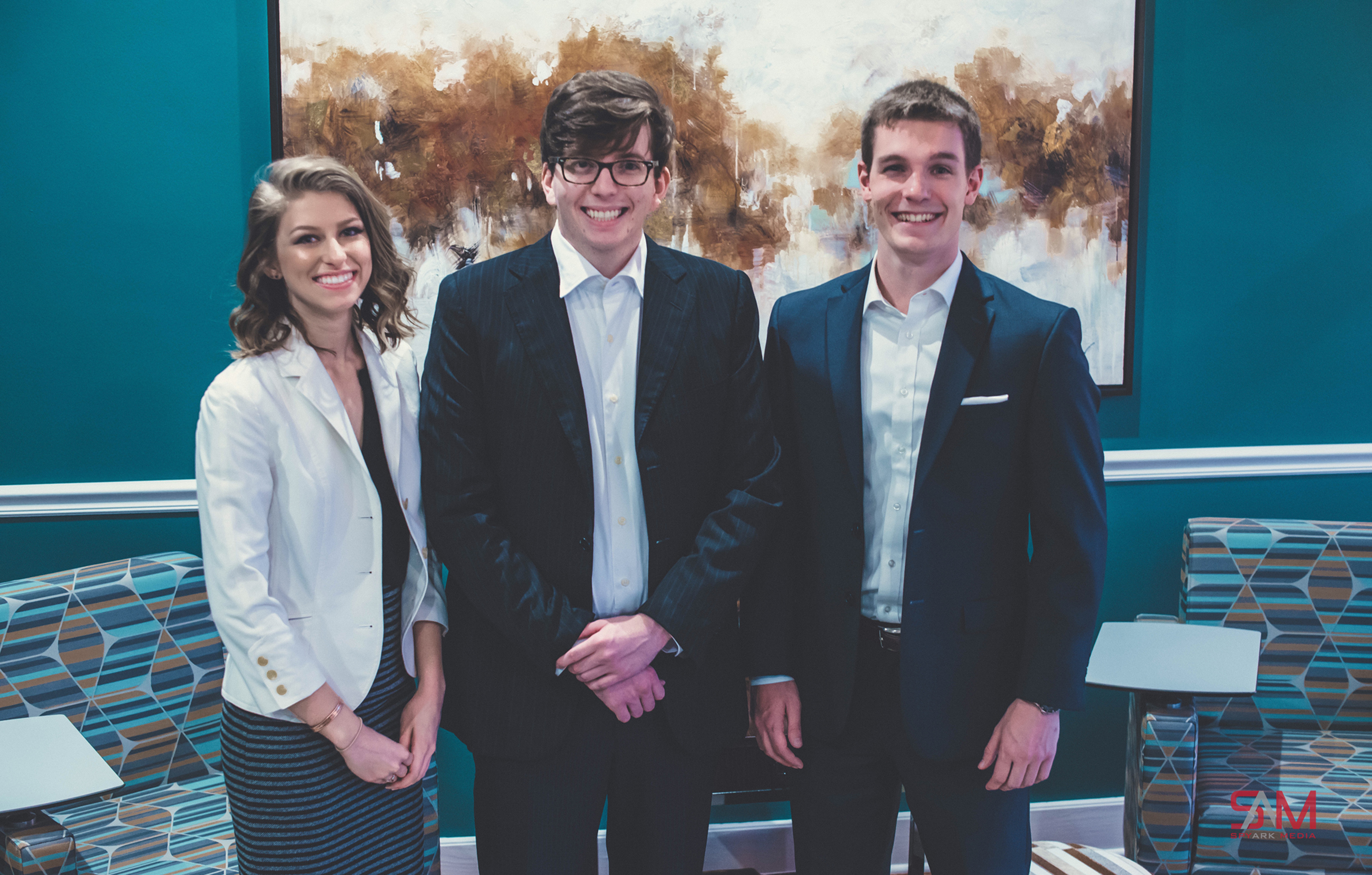UA Little Rock students participate in 2017 Delta I-Fund program
Three University of Arkansas at Little Rock students have exceeded the halfway point of the 2017 Arkansas Regional Innovation Hub Delta I-Fund program, and are hoping to take their newly established business, Spiritum Solutions, to the next level.
The Delta I-Fund is an early stage proof-of-concept fund created to capitalize and train up-and-coming entrepreneurs. The purpose of the 12-week program is to mentor young business minds while helping them to develop and validate their ideas.
Representing UA Little Rock in the program is Noah Asher and Nick Lester, both accounting and finance majors, and Ingrid Helgestad, a biology major. The trio teamed up with the University of Arkansas for Medical Sciences Bioventures to commercialize a medical mouth guard that could reduce problems in surgeries involving endotracheal tubes.
Creating the solution
It is common for patients having surgery or bronchoscope procedures to bite the endotracheal tubes used for ventilation. To prevent patients from damaging their tongue, teeth, or gums, surgical technicians use plastic syringes, rolls of gauze, or wooden sticks with foam attached to the top to try to prevent them from biting the equipment.
With the medical mouth guard, the chance of oral trauma can be reduced. The soft polymer bite block prevents patients from using their teeth to bite down on the equipment and safeguards them from dental distress.
“We chose something that had a good chance of market success and something that’s also solving an issue that we all care about and impacts the world for the better,” Asher said.
Each team accepted into the program has access to up to $50,000 in investment funding, and so far, Spiritum Solutions has gone through the first stage of pitching and has received $5,000. The students are using the funds to conduct research and interviews and attend conferences.
“Our goal right now is to get as much clinical backing and validation for the problem we’re trying to solve,” Asher said. “Once we have that backing, that really empowers us to go to the next level.”
Onward and upward
The next step for the team would be getting their product through FDA trials. This process could take up two to four years, so patience for this group is paramount. Helping to stir the team in the right direction is Spencer Jones, CEO of Lineus Medical and the team’s mentor.
According to Asher, Jones’ technological development, the SafeBreak IV, was similar in nature to the team’s mouthguard, so his path to market mirrors that of Spiritum Solutions. Because Jones was successful in his endeavors, Asher believes his input adds much value to the team.
“We have a great working relationship with Spencer,” Lester said. “We get insight into the real world, not just in planning, but actually executing the plans and doing the business.”
The further along the team gets into the developmental process, the more they get excited about the future of Spiritum Solutions. Understanding that they are only in the beginning stages of the startup makes them that much more eager to address the challenges and opportunities that lie ahead.
“I think we’re in a very unique position at this point in our lives where we’re much more freer to take risks like this and kind of put ourselves out there,” Asher said. “If we get knocked down, it’s not that hard to get up at this point.”
Because work and school are also priorities for the students, pursuing their business comes at a major price, but it’s one that they’re willing to pay.
“We have no free time,” Hegelstad laughingly said, “but it’ll all be worth it.”
Fortunately, the students are receiving college credit for completing the program. Their professors are just as excited as they are about their participation in Delta I-Fund.
“I think that our professors are glad to see us taking so much initiative,” Asher said. “The real world experience that we’ve gained really solidifies the teaching that we’ve received at UA Little Rock.”
The Spiritum Solutions team is thankful for the networking opportunities they’ve received and the doors that have already opened due to being a part of this program. They hope to one day return to the university and help other students excel in the program and bring innovative jobs to Arkansas as well.
